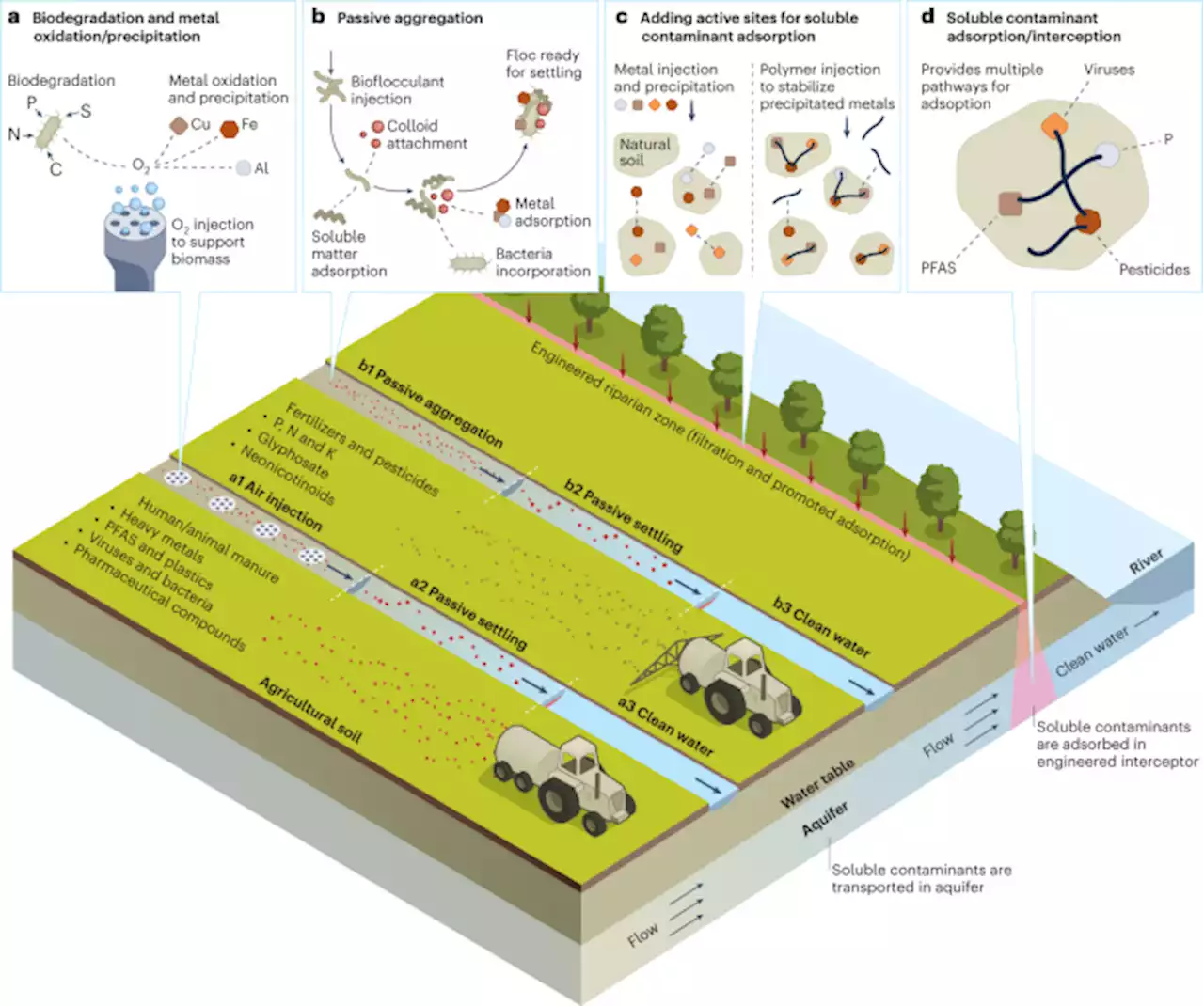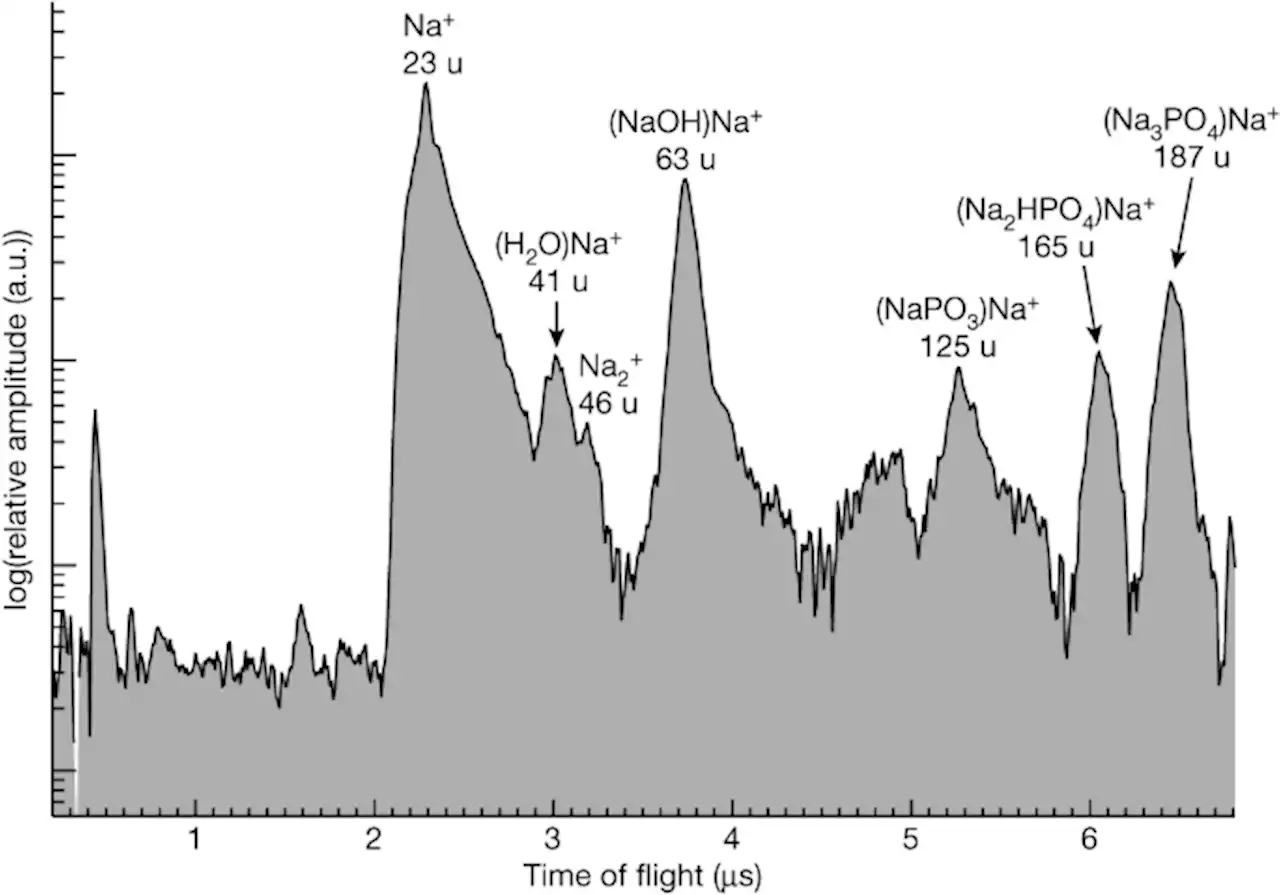Nature research paper: Detection of phosphates originating from Enceladus’s ocean
in fluids controlled by the hydroxyapatite-calcite buffer. The effects of colder fluids, as used in the experiments, down to oceanic temperatures near 0 °C can be seen. The phosphate concentration increases with lower temperature at constant pH because hydroxyapatite becomes less stable relative to calcite at lower temperatures. To achieve ΣPOin the range 0.
A phosphate:phosphite ratio of at least around 10:1, as implied by our results, is consistent with the much greater thermodynamic stability of phosphates relative to phosphites under Enceladean ocean conditions
Australia Latest News, Australia Headlines
Similar News:You can also read news stories similar to this one that we have collected from other news sources.
![]() Pixel phones receive a slew of new features like improved car crash detection | EngadgetGoogle just added a bunch of new features for Pixel smartphone owners in a system update.
Pixel phones receive a slew of new features like improved car crash detection | EngadgetGoogle just added a bunch of new features for Pixel smartphone owners in a system update.
Read more »
 First Detection of the BAO Signal from Early DESI DataWe present the first detection of the baryon acoustic oscillations (BAO) signal obtained using unblinded data collected during the initial two months of operations of the Stage-IV ground-based Dark Energy Spectroscopic Instrument (DESI). From a selected sample of 261,291 Luminous Red Galaxies spanning the redshift interval 0.4 | z | 1.1 and covering 1651 square degrees with a 57.9% completeness level, we report a ~5 sigma level BAO detection and the measurement of the BAO location at a precision of 1.7%. Using a Bright Galaxy Sample of 109,523 galaxies in the redshift range 0.1 | z | 0.5, over 3677 square degrees with a 50.0% completeness, we also detect the BAO feature at ~3 sigma significance with a 2.6% precision. These first BAO measurements represent an important milestone, acting as a quality control on the optimal performance of the complex robotically-actuated, fiber-fed DESI spectrograph, as well as an early validation of the DESI spectroscopic pipeline and data management system. Based on these first promising results, we forecast that DESI is on target to achieve a high-significance BAO detection at sub-percent precision with the completed 5-year survey data, meeting the top-level science requirements on BAO measurements. This exquisite level of precision will set new standards in cosmology and confirm DESI as the most competitive BAO experiment for the remainder of this decade.
First Detection of the BAO Signal from Early DESI DataWe present the first detection of the baryon acoustic oscillations (BAO) signal obtained using unblinded data collected during the initial two months of operations of the Stage-IV ground-based Dark Energy Spectroscopic Instrument (DESI). From a selected sample of 261,291 Luminous Red Galaxies spanning the redshift interval 0.4 | z | 1.1 and covering 1651 square degrees with a 57.9% completeness level, we report a ~5 sigma level BAO detection and the measurement of the BAO location at a precision of 1.7%. Using a Bright Galaxy Sample of 109,523 galaxies in the redshift range 0.1 | z | 0.5, over 3677 square degrees with a 50.0% completeness, we also detect the BAO feature at ~3 sigma significance with a 2.6% precision. These first BAO measurements represent an important milestone, acting as a quality control on the optimal performance of the complex robotically-actuated, fiber-fed DESI spectrograph, as well as an early validation of the DESI spectroscopic pipeline and data management system. Based on these first promising results, we forecast that DESI is on target to achieve a high-significance BAO detection at sub-percent precision with the completed 5-year survey data, meeting the top-level science requirements on BAO measurements. This exquisite level of precision will set new standards in cosmology and confirm DESI as the most competitive BAO experiment for the remainder of this decade.
Read more »
 Scientists fight claim EU nature law hurts farmersClaims by centre-right lawmakers that the EU's flagship bill to restore nature will hurt farmers and endanger food security are not supported by scientific evidence, more than 3,000 scientists said on Tuesday, in an open letter defending the proposal.
Scientists fight claim EU nature law hurts farmersClaims by centre-right lawmakers that the EU's flagship bill to restore nature will hurt farmers and endanger food security are not supported by scientific evidence, more than 3,000 scientists said on Tuesday, in an open letter defending the proposal.
Read more »
 Artist Refik Anadol’s Soundtrack to Life Is NatureBecause words are distracting.
Artist Refik Anadol’s Soundtrack to Life Is NatureBecause words are distracting.
Read more »
 Axonemal structures reveal mechanoregulatory and disease mechanisms - NatureDetailed atomic models of axonemes from algal flagella and human respiratory cilia, which are hair-like protrusions from cells that enable motility and clear mucus from human airways, could provide insights into how they function.
Axonemal structures reveal mechanoregulatory and disease mechanisms - NatureDetailed atomic models of axonemes from algal flagella and human respiratory cilia, which are hair-like protrusions from cells that enable motility and clear mucus from human airways, could provide insights into how they function.
Read more »
 Passive ecosystem services, juxtaposed with engineered processes, can democratize wastewater treatment - Nature WaterDue to technological, economic and environmental constraints, contemporary treatment plants cannot treat all wastewater. In particular, the very high amount of agricultural and urban runoff to be treated is increasingly concerning, especially with more erratic — and unpredictable — rainfall events. Passive ecosystem services can be combined with engineered processes to create hybrid, locally adapted, inexpensive and sustainable technologies to more feasibly treat runoff and wastewater globally.
Passive ecosystem services, juxtaposed with engineered processes, can democratize wastewater treatment - Nature WaterDue to technological, economic and environmental constraints, contemporary treatment plants cannot treat all wastewater. In particular, the very high amount of agricultural and urban runoff to be treated is increasingly concerning, especially with more erratic — and unpredictable — rainfall events. Passive ecosystem services can be combined with engineered processes to create hybrid, locally adapted, inexpensive and sustainable technologies to more feasibly treat runoff and wastewater globally.
Read more »
